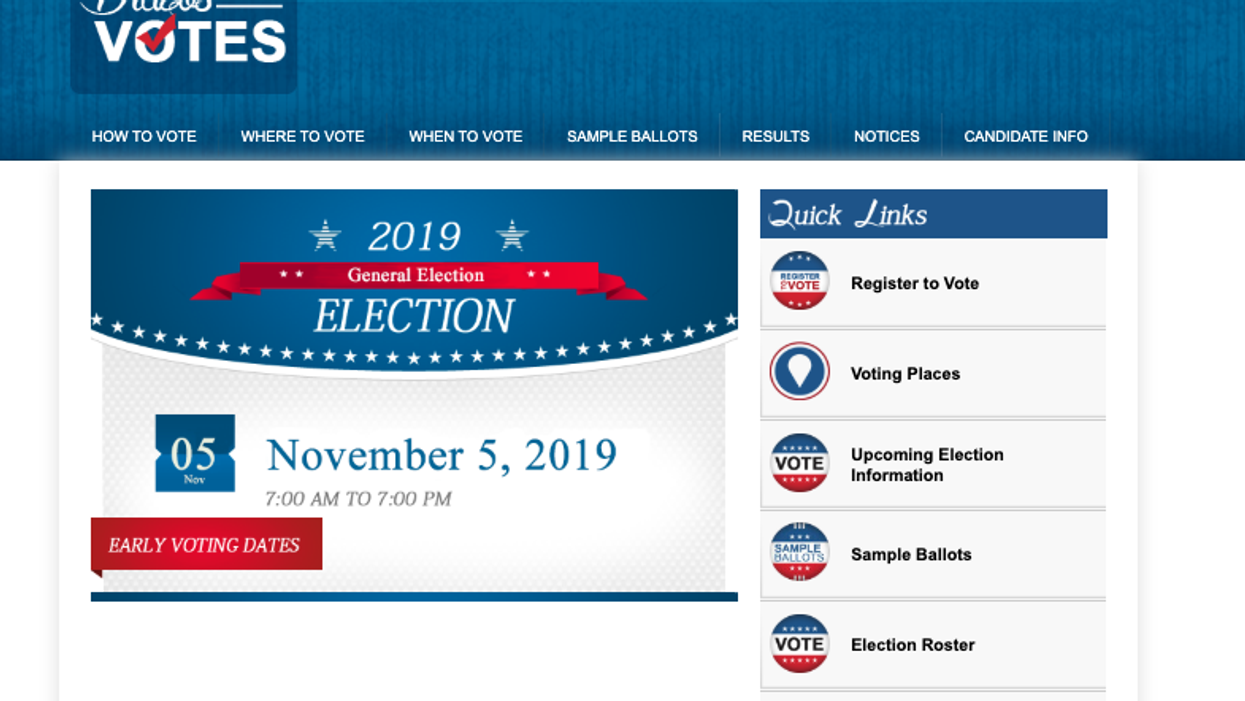Four out of five counties in Texas have election websites that are not properly secured against hackers, the state's League of Women Voters says.
And the central flaw is alarmingly simple for anyone to detect, involving just a single letter. Of the 254 counties charged with administering elections in the nation's second biggest state, 201 have websites that have "http" at the start of their URL web addresses rather than the more secure "https," the League said in a recent report.
The review also found that many county election websites do not have ".gov" extensions, which would signal to a visitor that they were looking at a government site.
Using "https" is considered a basic best practice for securing a website because data passed to these sites is protected through an encrypted connection — unlike "http" sites. Encryption prevents a third party from intercepting information sent by a user to a website. Most e-commerce sites have adopted the practice, for example.
The process for converting an address is not always simple or cost-free, but there are plenty of ways to get started.
The counties should resolve both issues ahead of the 2020 election, LWV stressed. "Ensuring a safe and secure election should be a priority for county election officials," the report says. "The League of Women Voters of Texas encourages the Texas Secretary of State to assist counties to rapidly improve website security for the 2020 elections."




















